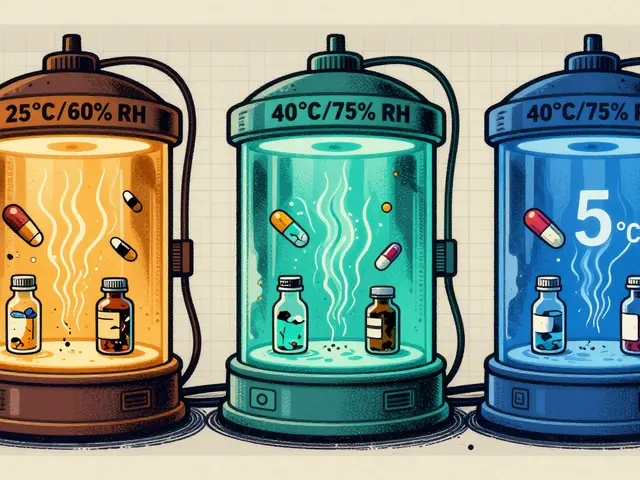Psychiatric Disorders — real help for medications, side effects, and everyday life
Feeling overwhelmed by a diagnosis, a new prescription, or side effects? You’re not alone. This tag gathers plain‑spoken articles that help you understand meds, compare alternatives, manage side effects, and handle day‑to‑day challenges like dating or work while living with a psychiatric condition.
If you want fast, useful steps, start here: keep a short log of what you take and how you feel, never stop SSRIs or antipsychotics suddenly without a doctor’s plan, and carry a list of current meds (including over‑the‑counter supplements) to every appointment.
Medications, side effects, and safer choices
Medications can help a lot, but they also bring questions. Track side effects for two weeks and note timing (did nausea start after the first dose or after a month?). Share that info with your prescriber. If a drug causes sleep problems, weight change, or severe tiredness, ask about alternatives or dose adjustments. For example, our guides on Paroxetine side effects and Seroquel alternatives walk through common trade‑offs and what to expect when switching.
Quick checklist to bring to your prescriber:
- List of symptoms you want treated (what bothers you most)
- Current meds, doses, and when you take them
- Side effects you’ve noticed and when they began
- Past meds that helped or caused problems
Ask your pharmacist to check for drug interactions — they often catch things busy doctors miss. If cost is an issue, look for generic options or discount services and compare prices before switching pharmacies.
Practical daily tips and social life
Living well with a psychiatric disorder is more than meds. Build small routines: regular sleep, short daily walks, and two social check‑ins a week (even a text counts). For dating with panic disorder, be direct: tell a new partner what helps (quiet seats, stepping outside briefly) and pick low‑pressure activities at first. Our piece on Panic Disorder and Dating has real examples of what to say and how to set boundaries without oversharing.
Therapy and peer support matter. If therapy waitlists are long, look for group therapy, online CBT programs, or community mental‑health clinics with sliding fees. If you ever have thoughts of hurting yourself or others, call your local emergency number or a crisis line immediately — that’s not something to handle alone.
Browse the tag for specific reads: "A Closer Look at Paroxetine's Side Effects," "8 Alternatives to Seroquel," and practical tips on living with panic disorder. If something in an article applies to you, print it and bring it to your next appointment — it makes conversations with clinicians clearer and faster.
Want help finding a specific article or topic under this tag? Use the site search or reach out through our contact page. We aim to make psychiatric info simple, useful, and immediately applicable to your life.

This article explores the surprising role of SV2A, a protein previously famous for epilepsy treatment, and its emerging significance in psychiatric and neurodegenerative disorders. Learn how SV2A-targeting therapies, originally made for seizures, are now being tested for conditions like depression, schizophrenia, and Alzheimer’s disease. The article reviews what science reveals about SV2A in the brain and why it’s catching the attention of drug developers. Find practical tips, real stats, and an honest look at the future of SV2A-based treatments. Packed with hands-on insights, the article makes the latest neuroscience research easy to understand for everyone.
Continue Reading





